One woman’s journey for change in mental health awareness
Jenny Smith is a consumer advisor for her local health district and a mental health educator, who shares her experience with others. She goes to regular workshops and carer support groups and generally lives a happy, healthy and fulfilling life. But that was not always the case.
Jenny has also been diagnosed with depression and anxiety, and spent much of her life helping to care for her father and sister who live with mental illness.
Growing up, Jenny had a fairly happy childhood – “playing outside, going to the park and spending my pocket money on a bag of lollies.” She spent time with her friends and played with her sister, but there was a cloud on the horizon. Everything started when her mother went to hospital for a routine operation.
“[It] was supposed to be a simple procedure but it did go wrong and as a result she nearly died…this event seem to affect Dad a lot…”
Soon her father’s behaviour began to change; he began pacing, shouting, playing loud, obnoxious music, and having random bursts of anti-social behaviour. It gradually got worse. “He had some psychotic episodes: he thought mum was using drugs, poisoning his food, then in one instance he poured the coffee out of the jar for my sister and I to check for drugs.”
During one particular episode, her father disappeared in the afternoon and after her mother noticed his medicare card was missing, they discovered his doctor had sent him to the local psychiatric hospital, where he stayed overnight and then discharged himself.
“The local mental health team came to visit him the next day, he wasn’t interested in their help but was referred by our GP to see a local psychiatrist. He only ever saw him a couple of times and started taking an anti-psychotic drug, which he did not take all the time, therefore his moods were unstable.”
Concerned for her safety, Jenny’s mum left her father for a while.
Around this time, Jenny started developing symptoms of her own: shaking hands, rapid heartbeat insomnia and an upset stomach, which she initially attributed to stress. However, as they progressed throughout the years, it became apparent there was something bigger at play and she was eventually diagnosed with depression and anxiety.
Jenny graduated in 1991 – almost twenty years before the introduction of the Mental Health Act 2007. There was little to no recognition of mental health issues at schools.
No one recognised the issues Jenny was having might be due to deteriorating mental health. Yet Jenny recalls how her mental health affected all aspects of her school life.
“…My results were below average and I was having difficulties keeping up with homework and assignments.”
At the end of year 10, Jenny was required to complete an application to continue at her current school for her HSC – her application was rejected and she was forced to move schools.
“I had to leave at the end of the year, I left behind friends I had grown up with and familiar surroundings… I was the new kid. I found it hard to make friends, adapt to a new timetable/new rules and new surroundings that I wasn’t use to.”
All this time, at home, her father’s mental health was getting worse.
As well as dealing with her and her father’s mental health issues, it was becoming apparent that Jenny’s sister was struggling as well. She had been diagnosed with learning difficulties in primary school but these were never followed up and, as a result, she never managed to complete her HSC.
“My sister was also having her own problems with suicidal thoughts, panic attacks and self-harm. She did get some help from a local adolescent health unit but the psychiatrist she saw refused to put on her medication…She wasn’t coping at home with my dad’s behaviour; she started going out all day, every day to avoid him. One day, unexpectedly, she walked out and moved into a crisis refuge, which then lead to a placement in supported housing.
During her time in supported housing, Jenny’s sister became increasingly depressed and attempted an overdose. The health professionals were having difficulty with her medications and the constant change was making her unwell.
After leaving school, Jenny worked for some years as a preschool assistant before deciding to pursue a life-time dream and train as a primary school teacher. But it did not turn out as she’d hoped.
The combination of her own battle with mental health and having to deal with the deteriorating mental health of her father and sister made it difficult to complete assessments on time. In an attempt to make up for these failed assessments Jenny placed additional pressure on herself, which only increased her stress, with her grades continuing to suffer. This culminated in her first year of prac teaching.
“I got a Year 6 class, I had been working with them during the semester so I knew the kids well. We were very limited in what subjects we could teach in first year; it was only maths and english. I didn’t last three weeks; after the first two weeks, it was decided by the senior supervisor that my teaching skills were not up to standard and I was given a fail grade… The decision had been made and I was asked to leave the school.”
Jenny was devastated.
Her depression and anxiety spiralled and she failed the second semester and dropped out of university.
Deciding that she needed further help Jenny went to see her family GP who was aware of the family history of mental illness and prescribed her a combination of anti-depressants and counselling which helped her learn coping strategies for everyday problems.
In 2004, Jenny’s father was diagnosed with a rare form cancer. At the time, Jenny was working as a HSC exam supervisor but had to quit the job when it became clear her father’s condition was deteriorating.
“Dad had cancer for nearly two years – it was a rare blood cancer called multiple myeloma, and, unfortunately, he lost that battle in 2005 and died the night of my birthday.”
With help from her GP and the support of her family, Jenny made it through.
“I always remember mum and dad telling me to take one day at a time. Before dad died he told me to be happy and get on with the rest of my life.”
And that is exactly what she is doing. With the support of her family, who understand her mental health struggle, Jenny is getting back on her feet.
“I have been stable on medication for many years. Over the years, I have learnt a lot about myself. I think to survive a mental illness, you need courage, resilience and perseverance as well as a good support network. Today, I am generally well and I am a survivor of mental illness. I think the most important thing is to take baby steps with whatever challenges life throws at you.”
As an educator, Jenny is passionate about increasing the awareness around mental illness and decreasing the stigma attached to it. And, she believes in starting from the bottom up.
School is one of the most important learning opportunities in a person’s life and she would like to see mental health awareness for teachers and students included in the learning environment.
“[In my day] we did not have counsellors or much in the way of special education/needs teachers available at the time, neither did we have any peer support programs at school – it would have helped if we did. These days, there are more support services available in schools. I would like to see that continue so each child, no matter what their abilities, can reach their full potential.”
Written By Jean Roxon




